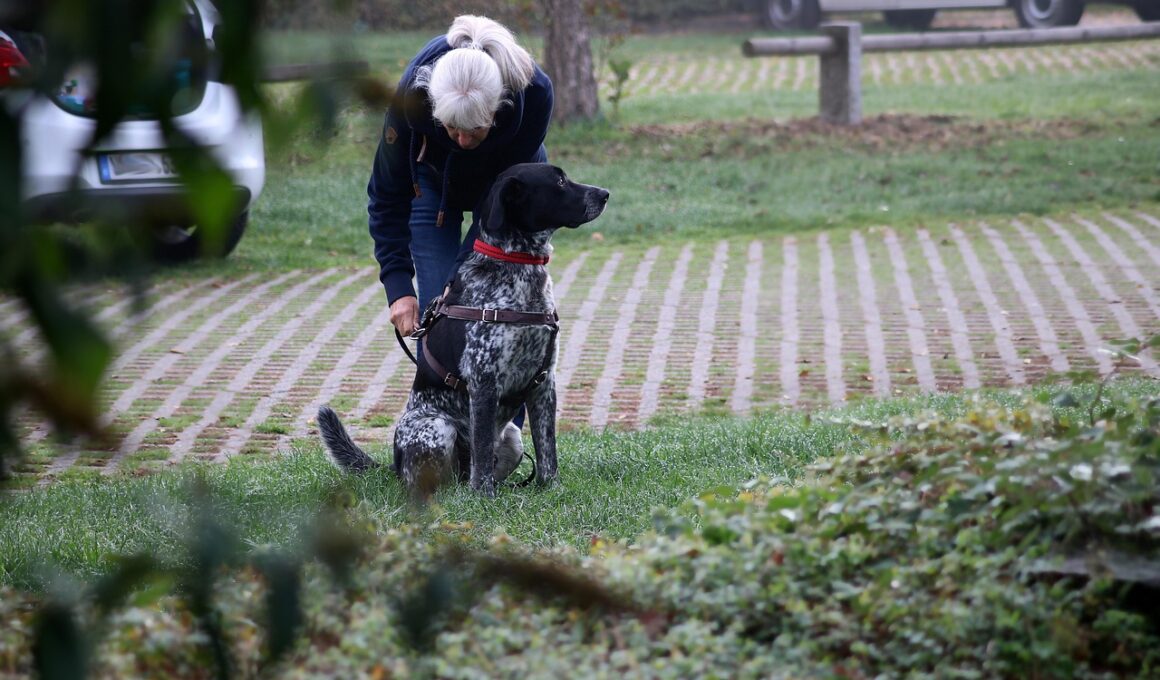Volunteer Opportunities: Getting Involved in Search and Rescue Missions
Engaging in search and rescue training offers diverse volunteer opportunities for animal lovers eager to support their local communities and emergency responders. Canines trained in search and rescue play a vital role during life-threatening situations such as natural disasters, missing person cases, and more, showcasing their incredible abilities when helping locate subjects in challenging environments. Not only do dogs bring unmatched sensory skills, but their training promotes confidence and endurance, enabling them to efficiently work alongside their handlers. As a volunteer, you will help hone these essential skills and positively impact both lives saved and community resilience. There are various organizations and training programs nationwide, allowing volunteers to select roles that match their interests and schedules. Volunteers may assist with organizing training sessions, participating in community outreach initiatives, or helping to conduct search operations as needed. Individuals with prior experience in training, dog handling, or emergency services are highly valued, but most groups welcome enthusiastic novices eager to learn. Furthermore, relationships fostered with fellow volunteers can lead to lasting friendships and invaluable community bonds. Consider joining a local search and rescue group today for an enriching experience.
Benefits of Volunteering in Search and Rescue
Volunteering in search and rescue not only provides key skills for enhancing your life but also offers numerous emotional and social benefits. Engaging in this type of work leads to increased physical activity, helping volunteers maintain a healthy lifestyle. Regular exercise is essential for ensuring volunteers are fit enough to participate in demanding training workouts. The camaraderie cultivated among volunteers fosters lasting friendships, creating networks of individuals focused on a shared purpose: saving lives. Additionally, these experiences help build self-esteem and confidence as participants learn to trust both themselves and their canine partners. The training generally involves complex tasks that cultivate teamwork and communication skills essential for effective collaboration during emergencies. Volunteers also have the chance to participate in community events and outreach programs, raising awareness about the vital role of search and rescue missions. As volunteers develop expertise, they are often recognized as valuable resources in their communities, providing training and mentoring for new members. Ultimately, this rewarding journey increases both personal fulfillment and community involvement, leaving volunteers with a strong sense of achievement and purpose.
Training sessions for both volunteers and their canine partners are crucial in ensuring effective search and rescue operations. Typical training programs involve a combination of obedience work, scent detection, and simulated search scenarios. First and foremost, basic obedience training is essential for establishing a solid foundation in the dog’s behavior. Subsequently, teams move on to scent detection exercises, teaching dogs how to locate specific odors in various environments. These tasks often begin in controlled settings, gradually increasing in difficulty as the teams progress. Simulated search scenarios allow dogs and handlers to practice their skills under pressure, effectively mimicking real-world situations. These training sessions not only develop skills but also strengthen the bond between the dog and handler, fostering mutual trust and understanding. Volunteers participating in these sessions benefit from expert guidance while honing their techniques in various capabilities. It is important for volunteers to attend regular refresher courses and workshops to stay updated on best practices and new methodologies. By dedicating time to training, volunteers ensure their readiness for challenges encountered in actual search and rescue missions.
How to Get Started in Search and Rescue
Getting started in search and rescue is an exciting and rewarding journey that requires research, commitment, and passion for animal work. First, potential volunteers should seek out local organizations that offer search and rescue training programs. Many of these groups provide information about upcoming orientation sessions or open houses for new members. Those interested in volunteering should attend these events to ask questions, learn about the organization’s mission, and understand the type of commitment expected. It’s crucial to assess your availability and the level of involvement you can dedicate to ensure a mutually beneficial experience. Additionally, prospective volunteers may want to consider working with a dog that is already trained or begin training a personal dog, as bond development is essential in search and rescue work. Training programs may require significant time; thus, volunteers should be prepared for several hours of commitment per week. Most organizations also prioritize fostering teamwork and communication skills within their members; actively participating in team-building exercises is beneficial for prospective volunteers in gaining experience.
Networking with other volunteers and experienced handlers can significantly enhance your search and rescue journey. Establishing connections within the search and rescue community offers numerous advantages, ranging from resource sharing to mentorship opportunities. Engaging with fellow volunteers and seasoned professionals can provide valuable insights into effective training methods and specialized techniques for successful missions. Attending workshops and seminars can also facilitate networking possibilities, exposing participants to new ideas and innovative approaches in the field. Online forums and social media groups dedicated to search and rescue are another excellent avenue for connecting with individuals who share the same mission, allowing for real-time sharing of experiences and advice. Moreover, these platforms also offer updates about upcoming events, trainings, and volunteer opportunities. Participation in regional or national conferences can serve as a vital resource for volunteers looking to stay informed on industry trends and best practices in search and rescue. Ultimately, building these professional relationships will enhance your understanding of the critical aspects of search and rescue while strengthening your position within the community.
Challenges in Search and Rescue Volunteering
Despite its numerous rewards, volunteering in search and rescue presents certain challenges that participants must navigate. One of the primary difficulties is the demanding physical and mental requirements of training and fieldwork. Volunteers must maintain peak physical fitness to work efficiently under pressure, facing challenging terrains and environments during searches. Additionally, dealing with the emotional aspects of search and rescue missions can be taxing, given that some outcomes might not always be favorable. Volunteers need to prepare for the reality of helping in potentially life-threatening situations, understanding the risks involved in such missions. Weather conditions often impact search and rescue operations as well, requiring adaptability and resilience for the team to effectively function. Limited resources can pose additional hurdles, with some organizations struggling to secure funding for training and operational equipment that ensure safety. Innovative problem-solving skills and collaboration among volunteers are necessary for overcoming these challenges, demonstrating their commitment to helping others. Participants must remain focused on their objectives, continuously finding motivation from the lives they impact through their dedication to service. Staying mindful of these challenges allows volunteers to better support one another.
In conclusion, engaging in search and rescue training offers a fulfilling experience for volunteers willing to commit their time and energy. The impact of well-trained search and rescue teams is profound, providing crucial support during emergencies and enhancing community resilience. Each volunteer plays a vital role in this mission, whether directly in the field with trained canines or indirectly through support roles and advocacy. The bonds formed between dogs and their handlers amplify the effectiveness of these missions, showcasing the remarkable instincts and loyalty of canine companions. The opportunities to learn, grow, and build connections are plentiful within search and rescue programs. Anyone interested in this rewarding pursuit should not hesitate to embark on their path toward becoming a valued contributor to local and national efforts. Focusing on the benefits of volunteering, including personal growth and community service, enhances the overall fulfillment one can achieve while participating. Ultimately, becoming involved in a search and rescue team is a life-changing decision that can save lives, strengthen the community, and enrich the volunteer experience.


